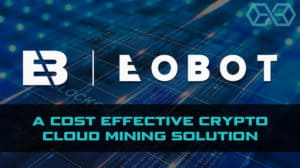2022-12-22 21:49 |
Public ledgers record data transparently so that anyone can view transactions. But at the same time, this lack of privacy hinders widespread blockchain adoption. We need approaches to ensure high levels of transparency without sacrificing privacy.
Zero-knowledge proof is a method that can be deployed to mitigate privacy-related concerns. It is a cryptographic technique that allows us to verify a transaction without disclosing its contents. In this way, we can keep secret information such as passwords or chats as private.
A common use case of zero-knowledge methods is identity verification. They can be used to carry out private NFT minting, as well.
Mint NFTs while protecting your privacyIn the NFT context, there are many instances that relate to privacy. Suppose you are a Web3 community member and would like to showcase your NFTs proudly to other members. For this purpose, you share your OpenSea account with them. They can view the NFTs you own; however, they can also see all the other transactions in your wallet, such as your cryptocurrency trades and DeFi activities like yield farming.
In short, if somebody can track your NFTs, they can track all your other transactions, resulting in severe security issues. To deal with such privacy concerns, we can incorporate zero-knowledge proof into different stages of NFT minting and transactions.
How does the private NFT minting process work?Two validity proofs enable such applications: zk-SNARKs and zk-STARK.
Zk-SNARK – zero-knowledge succinct non-interactive argument – is a short and easy-to-verify cryptographic proof. SNARKs create proofs utilizing elliptical curves, which are computationally cheaper than computing hashing functions used by the second validity type, zk-STARK. SNARK-based operations can be more efficient in terms of gas costs. For example, Horizon Labs has an audit product, zk Audit, built on SNARK protocol. It helps verification without disclosing identity information by processing transactions in an encrypted and aggregated format.
Credit: Horizon Labs – zk AuditOn the other hand, the zk-STARK – zero-knowledge scalable transparent argument of knowledge – protocols are high-speed and scalable. The Zero-knowledge STARK method was developed by the company StarkWare. Its flagship product deploying it, StarkEx, was used for minting over 92 million NFTs.
Private NFT auctionsSince zero-knowledge proof makes it possible to verify an individual’s identity privately, NFT auctions may also utilize it. In such scenarios, the identities of the bidders, as well as the amounts they offered to pay, are concealed. The participants have no way of knowing whether or not they are in a better position than the other bids. As a result of this, it’s posible to avoid unfair auctions.
Assign random attributes to NFTsIf we integrated applicationswith zero-knowledge proof, we can generate randomness powered by cryptographic proof. This can have many practical use cases. For example, blockchain games can design unpredictable gameplays via random outcomes. Moreover, we can link attributes to NFTs with tamper-proof randomness.
For instance, Chainlink’s Verifiable Source of Randomness (VRF) is one such solution. It’s a tool for random number generation for smart contracts. NFT teams can leverage it to protect the smart contracts with tamper-proof randomness that nobody can manipulate them. This way, NFT projects can distribute rare assets by assigning randomized attributes to each NFT in the collection.
Scalable NFT mintingApart from overcoming privacy-related issues, the second powerful feature of zero-knowledge technology is to decrease scalability limitations.
Particularly in circumstances where minting a large number of NFT assets is a necessity, such as in the case of play-to-earn game assets, the scalability aspect becomes crucial. Minting with zero-knowledge proof increases transaction throughput via rollups that batch multiple transactions into one single transaction, decreasing the total transaction costs significantly. It is a common practice for layer 2 blockchain solutions like Immutable X to incorporate zero-knowledge solutions into the NFT minting process to allow scalable operations.
The post Why Mint NFTs with Zero Knowledge Proof? appeared first on NFT News Today.
origin »Bitcoin price in Telegram @btc_price_every_hour
PROOF (PF) на Currencies.ru
|
|





